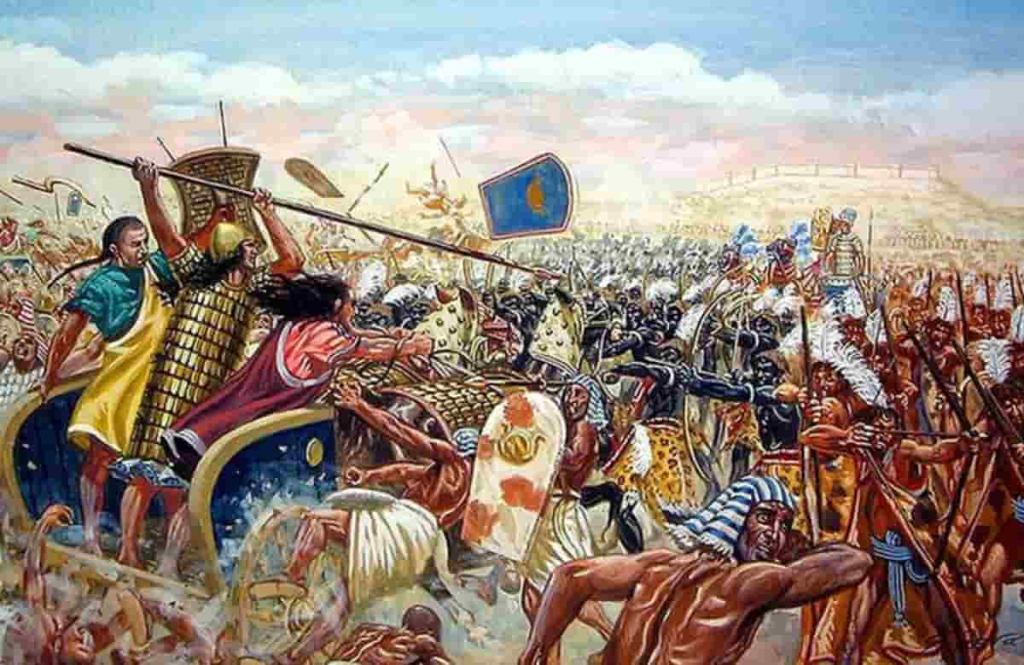
In the annals of ancient Egyptian history, the Hyksos invasion stands as a pivotal and tumultuous chapter. This enigmatic episode marked a period of external influence and shifting power dynamics in the Nile Valley. Join us as we delve into the intrigue of the Hyksos invasion, exploring its origins, impact, and the legacy it left on the landscape of ancient Egypt.
1. The Rise of the Hyksos
The term “Hyksos” originates from the ancient Egyptian phrase “heka khasewet,” meaning “rulers of foreign lands.” The Hyksos were a group of Semitic people, possibly from the Levant, who migrated to the Nile Delta. Capitalizing on Egypt’s weakened state and internal divisions, they gradually established their dominance over northern Egypt during the Second Intermediate Period (circa 1782–1570 BCE).
2. The Invasion and Rule
The Hyksos invasion was not a single dramatic event but a gradual infiltration and consolidation of power. By exploiting Egypt’s lack of unity and technological advancements, the Hyksos eventually established the 15th Dynasty, with their capital at Avaris in the Delta. They introduced new military technology, such as chariots and composite bows, and their rule had a significant impact on Egyptian society and governance.
3. Cultural and Political Impacts
The Hyksos rulers assimilated certain Egyptian customs and adopted Egyptian titles, reflecting a degree of cultural amalgamation. However, their presence was met with resistance from native Egyptians, particularly in Upper Egypt. Their control over key trade routes and resources contributed to the decline of Egypt’s status as a regional power.
4. Ahmose I and the Liberation
The Hyksos rule was ultimately challenged by the Theban prince Ahmose I, who founded the 18th Dynasty and initiated the New Kingdom era. Ahmose I led a successful campaign to drive the Hyksos out of Egypt, culminating in the liberation of Avaris and the reassertion of native Egyptian rule. The Hyksos were expelled from Egypt, marking the end of their influence.
5. Legacy and Influence
While the Hyksos invasion was a period of foreign rule and disruption, its legacy extends beyond its time. The experience of foreign domination spurred advancements in Egyptian military tactics and technology. The Hyksos introduced the chariot, which would become a staple of Egyptian warfare. Additionally, the expulsion of the Hyksos marked the beginning of the New Kingdom—a time of Egyptian resurgence, territorial expansion, and cultural flourishing.
6. Lessons of Adaptation
The Hyksos invasion serves as a reminder of the complex geopolitical dynamics of ancient times. It underscores the importance of unity, preparedness, and adaptability in the face of external threats. The Hyksos episode also highlights the enduring spirit of the Egyptian people to resist foreign domination and reassert their national identity.

